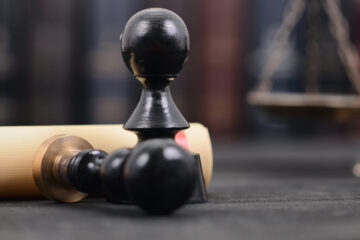"As Harris St. Laurent & Wechsler attorneys readied for an arbitration of a partnership dispute involving two co-founders of an alternative asset management fund, they exchanged documents with the other side and also fought some discovery battles. Typical for any dispute.
But when the New York City-based firm’s lawyers turned their attention to witness preparation in late 2020, it immediately became clear that their client came across as very robotic and unconvincing under questioning.
Yonaton Aronoff, a Harris St. Laurent & Wechsler partner, says this realization prompted the firm to play the ace up its sleeve: Monica Delgado, a doctor of psychology it had hired just months prior to work with clients at critical stages of their cases.
Delgado helped the fund co-founder process the range of emotions he was feeling about the key events in question and comfortably convey those feelings when facing inquiries, Aronoff says.
“It made him feel ready and unafraid to testify,” he says. Aronoff also credits what he calls “testifying therapy” with giving the firm’s client the confidence to hold the line in settlement discussions and ultimately secure a “very favorable settlement” ahead of the arbitration.
Overall, he points to the case as one example of how Delgado’s interactions with clients about the psychological side of their legal matters has benefited both them and the litigation-focused firm.
“If clients are able to find their emotional center, they testify in a more credible way and a more human way, which we find to be very valuable and persuasive to fact-finders,” Aronoff says. “We benefit from that process as well by understanding our clients’ emotional truth so that we can ask better questions and help shape their testimony.”
It is not uncommon for law firms to contract with jury consultants and other professionals knowledgeable about litigation to assess how witnesses are being perceived and how they may want to present themselves. But Harris St. Laurent & Wechsler leaders call the decision to hire a psychologist as a member of the firm’s staff a unique initiative."
This article was originally posted in the ABA Journal.


